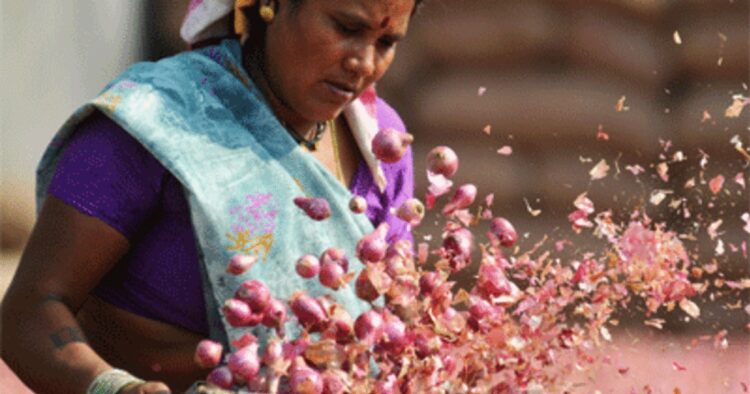The Indian government has spent nearly Rs 2,000 crore to distribute Bharat rice and wheat under the Price Stabilisation Fund (PSF) scheme. This initiative aims to control food inflation and support lower-income populations by providing essential grains at subsidized prices.
In the interim budget for the fiscal year 2025, the government allocated Rs 2.05 lakh crore for food subsidies. This is slightly lower than the revised budget of Rs 2.12 lakh crore for FY24 but higher than the expenditure of Rs 1.97 lakh crore in FY23. Experts believe these retail interventions, which involve purchasing, milling, and selling grains at discounted rates, have been beneficial for the poor.
Devendra Pant, the chief economist of India Ratings, explained that people at the bottom of the economic pyramid spend a larger proportion of their income on cereals compared to those in higher income brackets. Consequently, they face higher inflation, which affects their consumption growth.
In May 2023, food inflation slightly decreased to 8.69% from 8.7% in April. However, wheat retail inflation increased to 6.5% from 6%, while rice retail inflation eased to 12.3% from 12.5%. Overall, retail inflation dropped to 4.75% in May from 4.83% in April.
Since launching Bharat Chawal and Bharat Atta in November, the government has spent Rs 947 crore and Rs 956 crore on these products, respectively.
Bharat atta is available at a subsidized price of Rs 27.5 per kg, down from the initial Rs 29.5 per kg announced in February 2023. Bharat rice was launched in February at Rs 29 per kg to address the rising retail prices of the grain.
The Food Corporation of India (FCI) supplies these staples to three central procurement agencies: the National Agricultural Cooperative Marketing Federation of India (Nafed), the National Cooperative Consumers Federation of India Ltd (NCCF), and Kendriya Bhandar.
These agencies distribute the grains through mobile vans, fair-price shops, and online platforms. To date, they have sold 9.91 lakh tonnes of rice and nearly 13 lakh tonnes of atta.
The PSF, established in 2014-15 with a Rs 500 crore corpus, aims to maintain buffer stocks to prevent hoarding and protect consumers by supplying commodities at reasonable prices. It also incentivizes domestic production by directly purchasing from farmers and farmers’ associations. Initially, the PSF covered only onions, potatoes, and pulses.
With the launch of Bharat rice and atta, the government now compensates the FCI for supplying these products to the three procurement agencies.
The FCI receives a subsidy or discount from the PSF ranging from Rs 435 to Rs 585 per quintal of wheat and Rs 541 per quintal of rice. This helps Nafed, NCCF, and Kendriya Bhandar process and sell these grains under the Bharat brand.
Overall, the government’s efforts through the PSF scheme aim to control food prices, support the lower-income population, and ensure the availability of essential grains at affordable rates.

















Comments